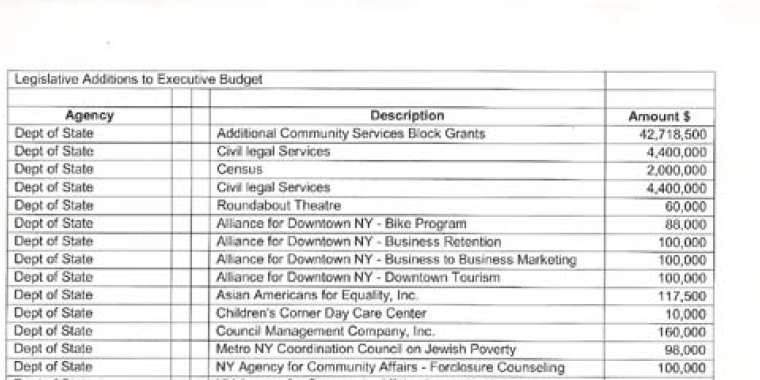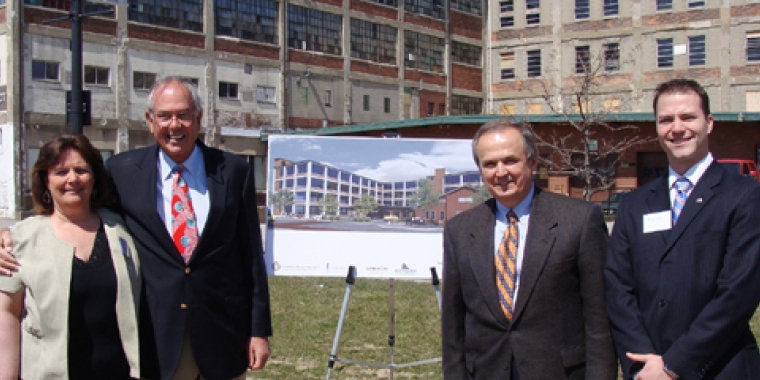Senate passes bills to increase 'green' building construction and reduce energy costs
George D. Maziarz
May 7, 2013
-
ISSUE:
- Energy
- Telecommunications
-
COMMITTEE:
- Energy and Telecommunications
The New York State Senate yesterday passed bills that would continue to promote the construction of environmentally-friendly buildings and the cost-saving benefits of net metering for utility bills. Both bills are sponsored by Senator George D. Maziarz (R-C, Newfane), and would help reduce the consumption of limited natural resources, promote the use of renewable energy, and lower energy costs.
The first measure (S3977) would extend the state’s Green Residential Building Grant Program to continue encouraging the construction of environmentally-friendly buildings. “Green” construction includes improved environmental performance in site preparation, water efficiency, energy efficiency, building materials selection, and indoor environmental quality, relative to buildings that are built using typical construction practices. These features often result in a lower utility operating cost for the home over time.
The Green Residential Building Grant Program was created in 2008 and began offering incentives in 2010 based on standards set by the New York State Energy Development Research Authority (NYSERDA). As of September 2012, NYSERDA received 222 incentive applications, approved 188 for payment, and paid $1,016,293 in incentives to qualifying building owners. This bill would continue to offer the program through October 31, 2016.
“The Green Residential Building Grant Program implemented in 2008 has proven to work, both for ensuring the construction of greener building and for energy savings,” said Senator Maziarz, Chairman of the Senate Energy and Telecommunications Committee. “The extension of this program will continue the important promotion of 'green' construction throughout this state, promoting improved environmental performance, such as energy and water efficiency. Not only will the extension continue to put New York in the national spotlight for environmental and energy legislation, but it will provide cost savings to residential utility bills over time.”
The second measure (S4514) would help more farms, municipalities and other non-residential customers receive the cost-cutting benefits of remote net metering by clarifying an existing 2011 law. Net metering allows the owner of a renewable energy system to receive credit on their utility bill for any unused power supplied to the electric grid by the system. The credit then is used to offset the power that is taken from the grid when the customer – including those with multiple meters - consumes more energy than the system is generating.
“Remote net metering has helped our state to unlock the potential of renewable energy generation and in the process we have reduced customer’s utility bills and harmful emissions,” said Senator Maziarz. “Since remote net metering was enacted in 2011, we have seen some examples of utility companies placing arbitrary restrictions on customers that have the effect of preventing them from realizing the full benefits of the program. This bill clarifies and reaffirms the letter and spirit of the remote net metering law we passed in unanimously in 2011, and demonstrates the strong commitment of the Senate Republican Conference to increasing our energy independence, lowering utility bills, and making the right choices for our environment.”
Some utility companies had been placing arbitrary minimum load requirements for non-residential remote net metering customers who utilize multiple meters under the same account, even though the law did not specify minimums needing to be met. This measure prohibits utility companies from placing load requirement on these customers if they were otherwise qualified to receive the benefits of remote net metering.
The bills will be sent to the Assembly.
#####
Share this Article or Press Release
Newsroom
Go to NewsroomMaziarz Plan to Eliminate Utility Tax
April 19, 2009
Power Authority Costs NY Another Major Employer
April 15, 2009

